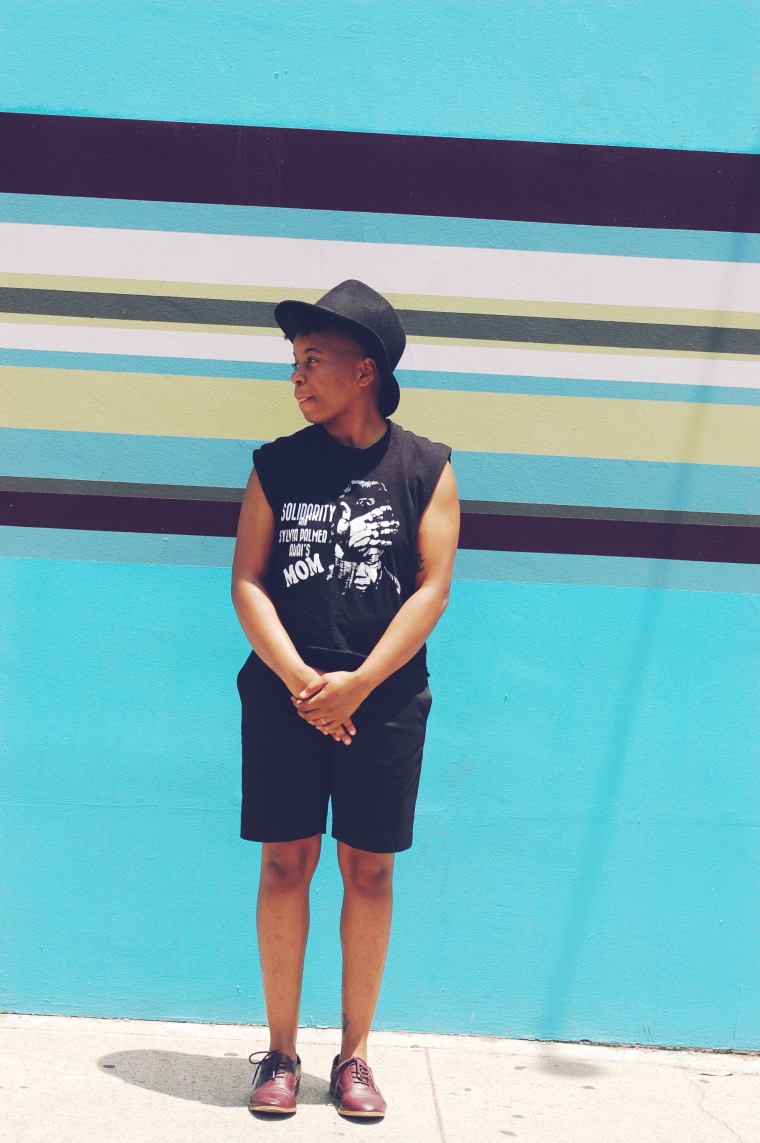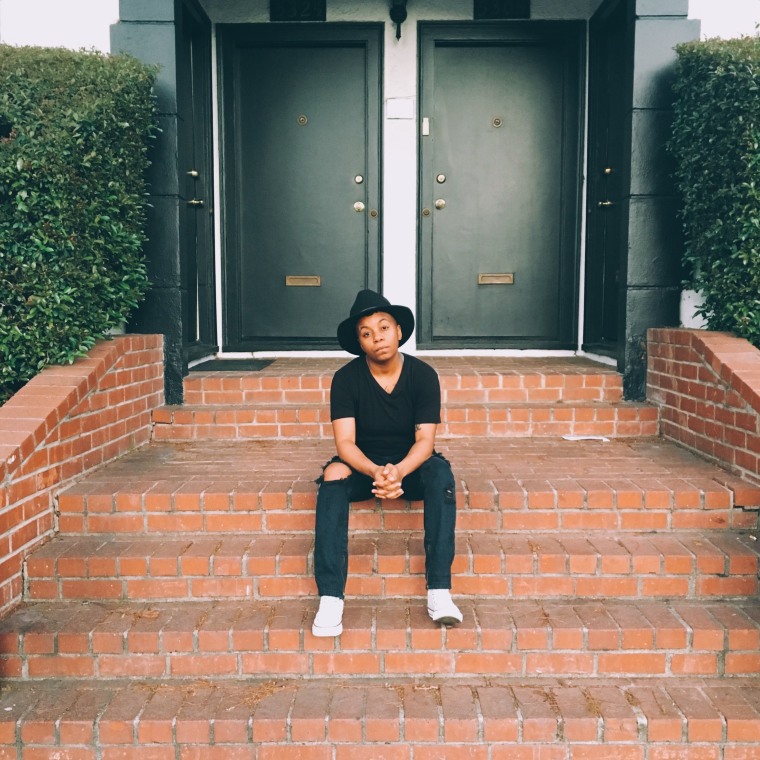The fight for marriage equality has been won. But for Black Live Matter organizer Kei Williams, the struggle has always been to stay alive.
“I’m black, I’m female bodied and I’m trans. I can’t get anymore outside the margins,” Williams told NBC OUT.
Williams identifies as a queer transmasculine person. That means he is biologically female, but identifies strongly with masculinity and uses masculine pronouns. He loves his identity but faces a lot of challenges.
Studies indicate transgender and gender-nonconforming people of color face a number of intersecting issues both from within and outside their communities. They made up the majority of hate violence related homicides reported in 2015, according to the National Coalition of Anti-Violence Programs. And the Washington Post notes black Americans are 2.5 times as likely as white Americans to be shot and killed by police.
“I’m always very concerned about walking around my neighborhood [and] interacting with people. In terms of police, I’m always concerned I look like a black boy,” Williams said.

The 27-year-old has been an organizer with the New York City chapter of Black Lives Matter for a little more than two years. Williams said there are a lot of misconceptions about the movement: That it is anti-police. That it’s violent. But also that it doesn’t center on LGBTQ rights.
“The reality is, there are a lot of queer folks in the movement doing the work,” Williams said. He noted that many members in the NYC chapter are queer-identified people, and that’s largely the case in chapters across the country.
“We’re really based on love. We’re talking about all black lives matter regardless of your gender or your identity. Black women, transgender and gender nonconforming folks — folks who are pushed out, even within the black community — we make sure they have a seat at the table,” Williams said.
Despite many BLM members being queer-identified, there is a big disconnect between the larger LGBTQ community and the movement, according to Williams. He thinks the LGBTQ community has focused largely on marriage equality and needs to do more to support minorities and marginalized groups.
“It’s great we have marriage. I can marry my partner, but what does that matter if I’m not alive to get married?” he asked.
Williams said the recent highly publicized killings of black people at the hands of police have taken a toll on his mental health. He suffers from depression. It’s a stigmatic topic within the black community that needs more attention, according to Williams.
“You see every 28 hours a black person is killed by police, or [there’s been] some type of justice vigilante [killing]. That takes a wear and tear on your spirit," he said. "If you’re already dealing with depression and anxiety, it triples it."
Williams wants to end the stigma surrounding mental health. He goes to therapy regularly and talks openly about his progress on social media. When something tragic happens in the black community, he turns to the BLM community for emotional support.
“We very much do check in on each other and love on each other,” he added. “There’s no other people I would rather get free with, or fight to get free with.”
The Harlem native juggles his freelance job as a graphic designer with his day-to-day responsibilities as an organizer. Williams called organizing a hectic job. He travels a lot. His day is full of conference calls, checking emails and social media and working to make ends meet. In the mean time, he tries to make time for himself.
“I can’t expect other folks to say ‘black lives matter’ if I’m not willing to put my heart into it,” he explained.
Williams called Black Lives Matter a movement, not a moment. His motivation for being a part of it is simple.
“I just love black people. We deserve to live. If there is no other fight I’m going to fight for, this is the one I’m going to fight. That’s the fight I want to be a part of.”

